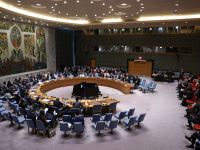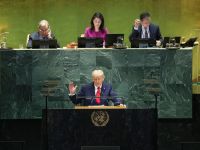Spain on last Tuesday pledged $50 million in development projects for Morocco and to swap $40 million in Moroccan debt to help lift its southern neighbor out of poverty and stem the flow of illegal immigration.
The plan to build infrastructure, telecommunications and water projects - which will benefit Spanish contractors - was signed during King Mohammed VI's first official visit to Spain.
The European and African neighbors, separated by 15 km of the Strait of Gibraltar, also agreed to study bolstering power connections between the two countries.
"The main goal is for Morocco to develop," Spanish Foreign Minister Josep Pique told Spain's Antena 3 television, adding that Morocco is the largest receiver of Spanish foreign aid, which grew six fold in the 1990s.
Thousands of Moroccan nationals and other North and Sub-Saharan Africans cross the troubled waters of the Gilbraltar strait to Spain each year in quest of jobs in Europe. According to official sources, the number of illegal and undocumented travelers this year already has doubled from all of 1999.
Both Morocco and Spain convene that the settlement is to create more jobs in Morocco, where 72 percent of the population is under the age of 35. "Immigration is by far the most important topic in bilateral relations for the coming decades," Pique said. "Other than the two Koreas and the Rio Grande (separating Mexico and the United States), there is no greater difference in wealth in the world than between the north and south of the Mediterranean."
But in a joint news conference with Pique, Moroccan Foreign Minister, Mohamed Benaissa, said that the problem was not bilateral because it involves people from several North African countries seeking jobs throughout Europe. "The problem of immigration, like that of drug trafficking, is not just about where they come from, but where they go. The problem is universal," Benaissa said.
The two countries have other matters on the agenda, including negotiations for a new Morocco-European Union fisheries agreement and the topic of Western Sahara, the former Spanish colony currently occupied by Morocco. But no breakthroughs were reported.
Morocco declined to renew the fisheries accord when it expired on November 30, 1999, under which nearly 600 European trawlers, mainly Spanish and Portuguese, used to operate in Moroccan waters.
Morocco had told the Union the two sides should seek a new partnership preserving the Kingdom's sea resources and Moroccan officials and fisheries professionals argue that the new partnership should seek the promotion of joint ventures in fisheries-related sectors such as shipyards, ships maintenance, and sea-food processing, in addition to fish-farming.
Fisheries professionals argue that the non-renewal of the accord with the European Union would undoubtedly have a positive incidence on the fisheries sector, as the Moroccan fleet catches would jump to 1.5 million tons in 2003, while these catches do not exceed 700,000 tons at present. Fish consumption in Morocco stands at only 7 KG per person per year while it exceeds 60 kg per person in Spain and Portugal. The sector employs nearly 400,000 workers.
With national territorial waters extending over 1.2 million squared kilometers and with a 3,500 km long sea coast, Morocco has huge sea resources and harbors over 840 fish species. —(Albawaba-MEBG)
© 2000 Mena Report (www.menareport.com)







